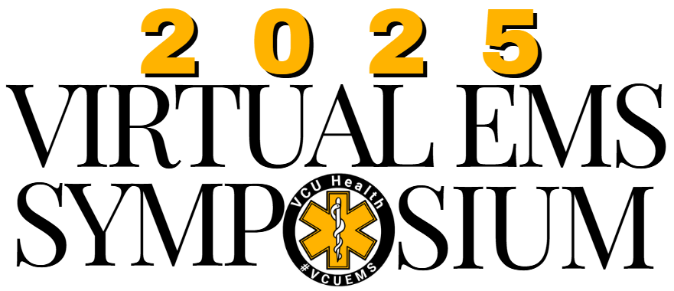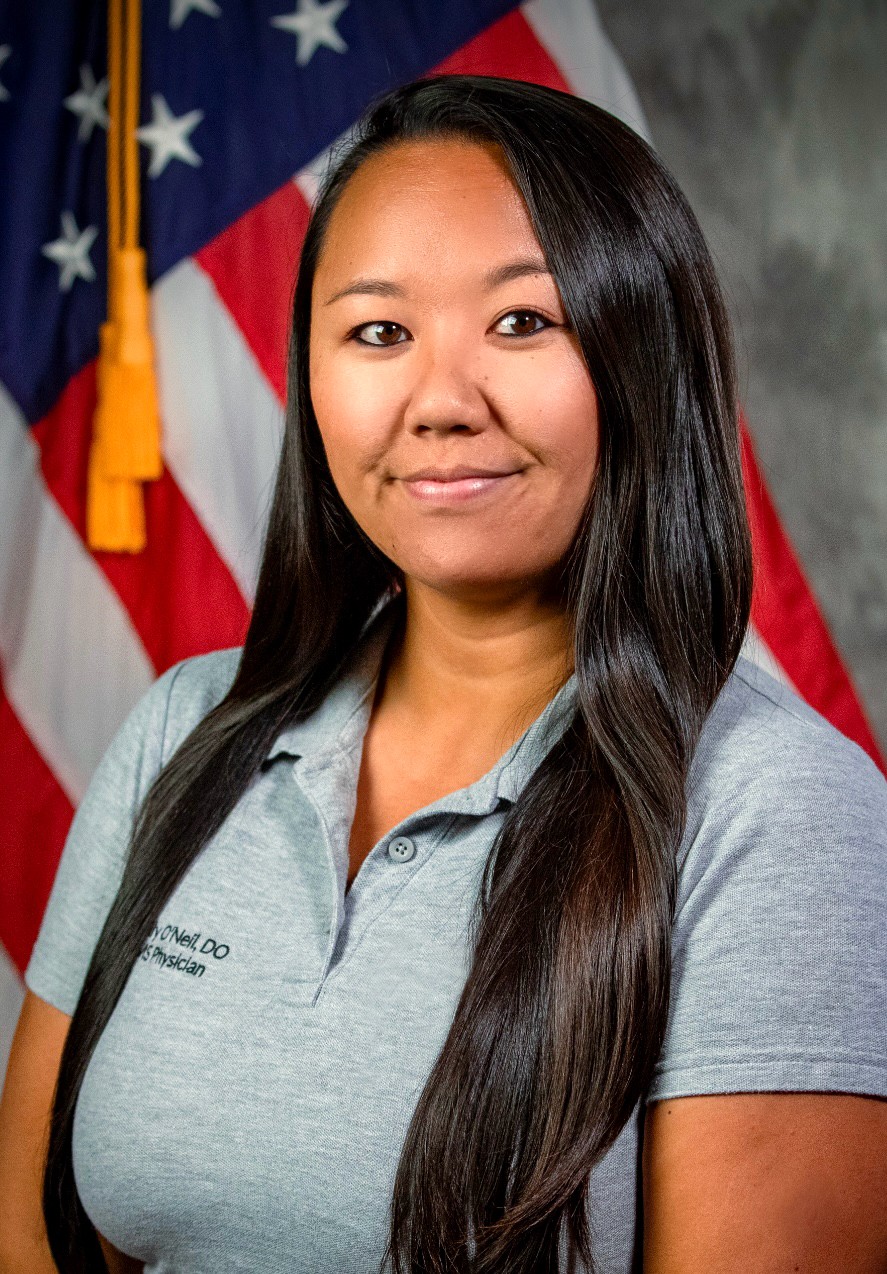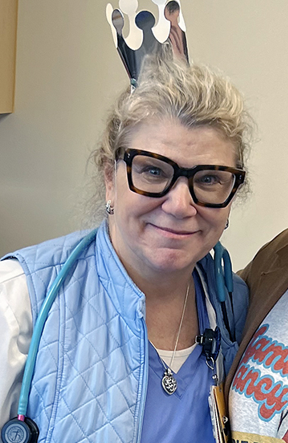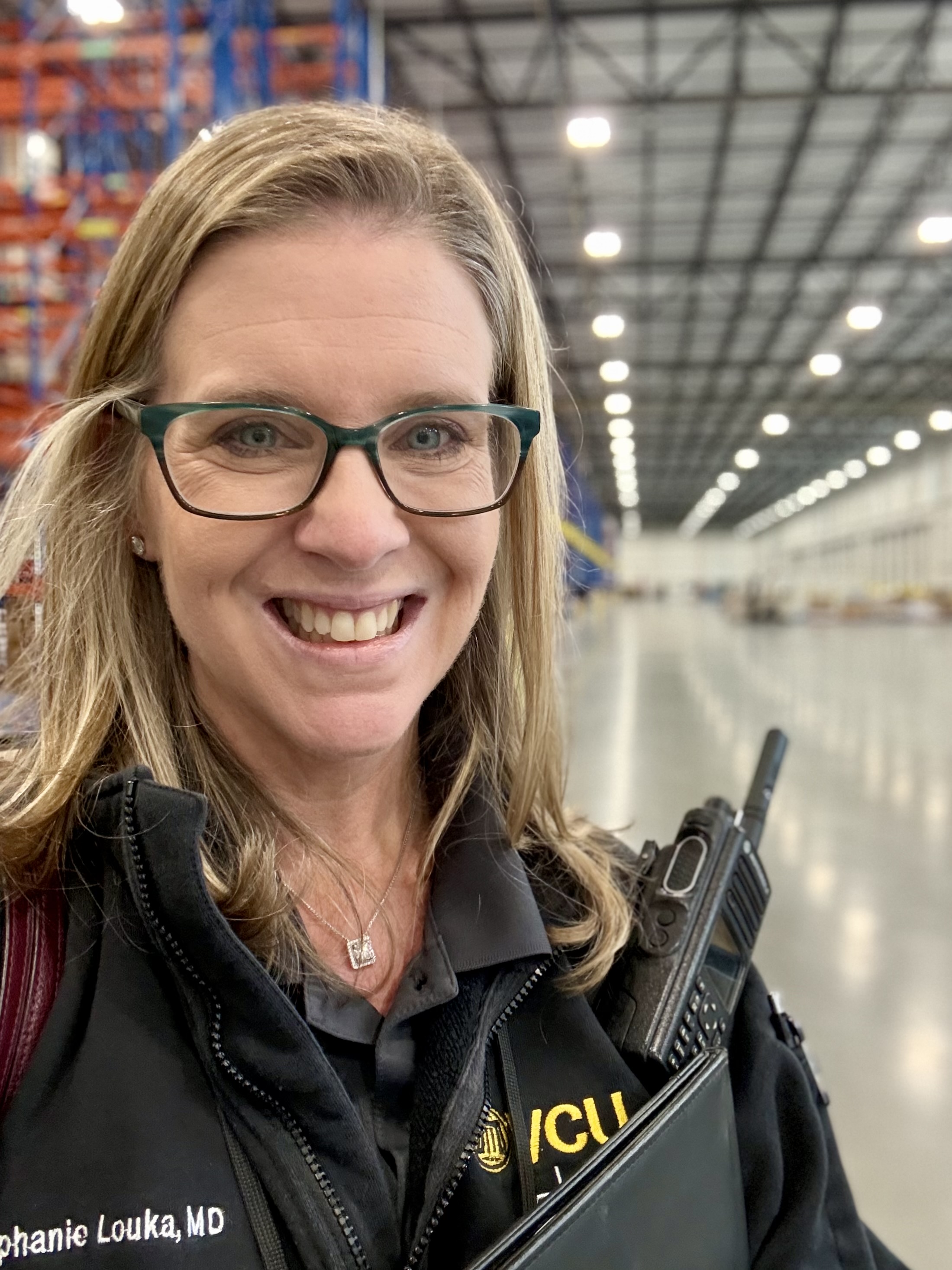
Sponsored by:
VCU Health and VCU Children's Hospital of Richmond at VCU
Sunday, Nov 2 | Monday Nov 3 | Tuesday, Nov 4 | Wednesday, Nov 5 | Thursday, Nov 6 | Friday, Nov 7 | Saturday, Nov 8
Chest Wall Trauma
Sunday, 11/2/2025
18:00-19:00
Course Description: Rib fractures rank as the most common chest wall injury from blunt trauma. Patients with chest wall trauma experience high morbidity (48% complication rate) and mortality (22% in the geriatric population). In 2024, 28% of all adult trauma activations at VCU Medical Center sustained rib fractures. This session will help the EMS provider to identify patients at risk for rib fractures and chest wall injury based on mechanism of injury. It also covers interventions based on clinical presentation and assessment in the pre-hospital setting and across the continuum of care. Trauma (BLS 13, ALS 18)
Beth Torres, PhD, RN, CCRN, TCRN


The BVM as a Murder Weapon
Sunday, 11/2/2025
19:00-20:00
Course Description: Bag-valve mask ventilation is one of EMS’s most essential—and potentially most dangerous—procedures. Participants will review core respiratory physiology and the delicate balance between oxygenation, ventilation, and respiration. The session explores how improper BVM use can unintentionally cause patient harm through barotrauma, gastric insufflation, or hemodynamic compromise, and examines the physiological consequences behind each. Using case examples and hands-on discussion, learners will develop techniques to deliver safer, more effective ventilations and explore training methods to build muscle memory and mitigate risk in high-stress situations. Airway, Ventilation (BLS 11, ALS 16)


MVC Injuries and Crush Injury Considerations.
Sunday, 11/2/2025
20:00-21:00
Course Description: In this lecture, we’ll explore a real-world case involving a motor vehicle collision with entrapment to examine the complex challenges of trauma care from scene to transport. Participants will review common injury patterns associated with vehicular crashes, key considerations during the extrication phase, and the pathophysiology and management of crush injuries. Trauma (BLS 13, ALS 18)


Consensus Guidelines for Resuscitation of Severely Injured Pediatric Trauma Patients
🍼 NCCP 2025 Pediatric
Monday, 11/3/2025
18:00-19:00
Class Description: This advanced session provides an in-depth review of the latest Pediatric Traumatic Hemorrhagic Shock Consensus Statement, translating cutting-edge recommendations into real-world prehospital and emergency care practice. Participants will examine updated evidence on fluid resuscitation strategies, permissive hypotension, balanced transfusion approaches, and early recognition of shock in pediatric trauma patients. The course emphasizes physiology-driven decision-making, teamwork during high-stakes resuscitations, and the integration of these guidelines into EMS protocols and trauma system operations. Trauma (BLS 13, ALS 18) NCCP 2025 Pediatric Topic


OB Emergencies
Monday, 11/3/2025
19:00-20:00
Course Description: This course prepares EMS providers to recognize and manage obstetric emergencies with confidence and composure. Participants will review key concepts of maternal and fetal anatomy, stages of labor, and common complications such as postpartum hemorrhage, shoulder dystocia, breech presentation, and eclampsia. Emphasis is placed on rapid assessment, calm teamwork, and effective prehospital interventions that support both mother and newborn. Medical (BLS 14, ALS 19)


Little Lives, Big Decisions
🍼 NCCP 2025 Pediatric
Monday, 11/3/2025
20:00-21:00
Course Description: is an interactive, game-based learning experience designed for EMS professionals who respond to pediatric emergencies. Through realistic scenarios, sound recognition, and rapid-response questions, participants will reinforce critical assessment and intervention skills for infants and children. This engaging format promotes teamwork, clinical decision-making, and confidence under pressure—all while earning CEU credit in a fun and dynamic way. Area Medical (BLS 14, ALS 19) NCCP 2025 Pediatric Topic
Nancy Georges, RN, MSN, CPN, CPEN, IBCLC


Pediatric Thoracic and Abdominal Trauma
🍼 NCCP 2025 Pediatric
Tuesday, 11/4/2025
18:00-19:00
Course Description: This course focuses on the unique presentation and management of thoracic and abdominal trauma in pediatric patients. Participants will explore how differences in pediatric anatomy and physiology influence injury patterns, assessment findings, and treatment priorities. Topics include recognition of internal bleeding, management of tension pneumothorax, and strategies for preventing secondary injury during transport. Trauma (BLS 13, ALS 18) NCCP 2025 Pediatric Topic
Jeffrey H. Haynes, MD, FACS, FAAP


NAEMSP Trauma Compendium Updates
Tuesday, 11/4/2025
19:00-20:00
Course Description: This session reviews key updates from the National Association of EMS Physicians (NAEMSP) Trauma Compendium, highlighting the latest evidence-based recommendations shaping prehospital trauma management. Participants will explore emerging trends in airway control, fluid resuscitation, pain management, hemorrhage control, and spinal motion restriction. The session emphasizes how new research and consensus statements translate into practical, field-level care and protocol development. Attendees will leave with a clearer understanding of current best practices and how these updates can improve patient outcomes in high-acuity trauma settings. Trauma (BLS 13, ALS 18)
Allen Yee, MD & Jeffrey Ferguson, MD


Prehospital Pediatric Restraints
🍼 NCCP 2025 Pediatric
Tuesday, 11/4/2025
20:00-21:00
Course Description: Safely restraining pediatric patients in the prehospital environment requires both technical skill and emotional sensitivity. This course explores best practices for the assessment, selection, and application of pediatric restraint systems during transport and emergency care. Participants will review current evidence-based recommendations, including appropriate device use, positioning for airway protection, and minimizing psychological trauma. Operations (BLS 15, ALS 20) NCCP 2025 Pediatric Topic


Toxicologic Emergencies
Wednesday, 11/5/2025
18:00-19:00
Course Description: This course will provide a brief introduction to the Virginia Poison Center, discuss more common and high-risk toxicologic emergencies, and review patient decontamination. Providers will gain a better understanding of the resources available at their local poison center, review common toxidromes and treatments, and learn about the decontamination process at VCU Health. Medical (BLS 14, ALS 19)


Advanced Injury Identification
Wednesday, 11/5/2025
19:00-20:00
Course Description: Every wound tells a story. This course introduces participants to the fundamentals of forensic wound identification, helping healthcare and prehospital providers recognize injury patterns that may indicate abuse, assault, or other medicolegal significance. Participants will learn to distinguish between accidental and intentional injuries, differentiate mechanisms such as blunt force, sharp force, and thermal trauma, and understand the importance of accurate documentation and chain of evidence. Trauma (BLS 13, ALS 18)


Prehospital LVAD Management
Wednesday, 11/5/2025
20:00-21:00
Course Description: Left Ventricular Assist Devices (LVADs) are lifesaving technologies that present unique challenges for prehospital providers. This course provides an in-depth overview of LVAD function, components, and common complications encountered in the field. Participants will learn how to assess patients with an LVAD, troubleshoot alarms, manage power supply issues, and recognize emergencies such as pump failure, bleeding, or stroke. Special emphasis is placed on differentiating perfusion status without a palpable pulse, effective communication with LVAD coordinators, and integrating care with receiving facilities. Cardiology (BLS 12, ALS 17)


Serving IPV Survivors: Screening with HITS & Motivational Interviewing
Thursday, 11/6/2025
18:00-19:00
Course Description: Intimate Partner Violence (IPV) affects individuals across all communities and often presents first in healthcare or emergency settings. This course equips providers with practical tools to recognize, screen, and respond to IPV using the validated HITS (Hurt, Insult, Threaten, Scream) screening tool alongside motivational interviewing techniques. Participants will learn how to create a safe, trauma-informed environment for disclosure, engage patients in nonjudgmental dialogue, and connect them with appropriate resources. Operations (BLS 15, ALS 20)


The Physiologic Changes of Aging and Their Impact on Trauma Response
Thursday, 11/6/2025
19:00-20:00
Class Description: As our population ages, there is an increasing need to be aware of how trauma and injuries affect our senior population. This talk will cover how our bodies age, changes we see and how those changes can affect our care. Prevention of injuries will also be discussed. Trauma (BLS 13, ALS 18)
Karen B. Shipman, BSN, RN, CEN, TCRN


Working in the Dark: The Risks We Take
Thursday, 11/6/2025
20:00-21:00
Course Description: This thought-provoking session explores the unseen and often unspoken risks faced by EMS providers when working in unpredictable environments—both literal and metaphorical darkness. From poorly lit scenes and hazardous conditions to gaps in information, fatigue, and cognitive overload, participants will examine how “working in the dark” impacts decision-making, safety, and patient outcomes. Through real-world examples and discussion, this session challenges providers to recognize hidden hazards, strengthen situational awareness, and build habits that illuminate the path toward safer, smarter care. Operations (BLS 15, ALS 20)


Prehospital Burn Care
Friday, 11/7/2025
18:00-19:00
Course Description: Burn injuries are among the most complex and time-sensitive emergencies encountered in the field, requiring rapid assessment, precise management, and early coordination with specialized centers. This course reviews the principles of prehospital burn care, from scene safety and initial patient evaluation to fluid resuscitation, airway management, and pain control. Trauma (BLS 13, ALS 18)


SAO2 and EtCO2 What do they tell you?
Friday, 11/7/2025
19:00-20:00
Course Description: Oxygen saturation (SaO₂) and end-tidal carbon dioxide (EtCO₂) are two of the most valuable—and often misunderstood—vital signs in patient assessment. This session breaks down how to interpret these parameters beyond the numbers, exploring what they reveal about oxygenation, ventilation, and perfusion in both stable and critically ill patients. Participants will learn how to recognize subtle trends, identify early signs of deterioration, and apply these concepts in trauma, medical, and airway management scenarios. Airway/Ventilation (BLS 11, ALS 16)


Trauma in the Rural Setting
Friday, 11/7/2025
20:00-21:00
Course Description: Rural trauma care presents unique challenges that demand adaptability, resourcefulness, and strong interdisciplinary coordination. This session explores the realities of delivering high-quality trauma care when distance, limited personnel, and constrained resources complicate rapid intervention. Participants will examine common injury patterns in rural environments, review evidence-based management strategies, and discuss the role of prehospital, critical access, and referral facilities in the trauma system. Trauma (BLS 13, ALS 18)


Prehospital Hypotension Management
Saturday, 11/8/2025
18:00-19:00
Course Description: A comprehensive overview on the signs and symptoms of hypotension, its etiologies, and its management in the pre-hospital setting. This presentation will focus more on non-hemorrhagic etiologies and focus on vasoactive medications for hypotension, the current research on the medications in the hands of EMS providers, and its applications and how support for EMS providers can improve in this theatre. Medical (BLS 14, ALS 19)


Non-Accidental Trauma: Identifying, Reporting and What Comes After
🍼 NCCP 2025 Pediatric
Saturday, 11/8/2025
19:00-20:00
Course Description: This session explores the complex and critical topic of Non-Accidental Trauma (NAT) in children—how to recognize it, report it, and understand the multidisciplinary process that follows. Participants will learn to distinguish between accidental and suspicious injury patterns, correlate findings with developmental capabilities, and identify common red flags across different clinical and prehospital settings. The course reviews mandatory reporting laws, documentation best practices, and communication strategies for interacting with families during sensitive situations. It also follows the path of a case after a report is made, detailing how medical providers, child protective services, law enforcement, and the judicial system collaborate to protect vulnerable children. Trauma (BLS 13, ALS 18) NCCP 2025 Pediatric Topic


Double Sequential Defibrillation
Saturday, 11/8/2025
20:00-21:00
Course Description: This course examines the evolving science and clinical debate surrounding Double Sequential Defibrillation (DSD) in refractory ventricular fibrillation. Participants will explore the proposed physiological rationale, review recent studies and case reports, and discuss the potential benefits, limitations, and risks of this advanced resuscitation technique. Emphasis is placed on identifying appropriate patient selection, understanding the mechanics of dual defibrillator use, and aligning field practice with current evidence and medical direction. Cardiology (BLS 12, ALS 17)

